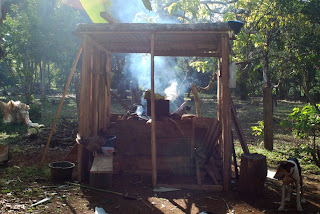I'm back, I'm back! Well, I was back on Monday already. We've been in Bluefields two days, and we're going to Pearl Lagoon to have a program with meetings there, before continuing on to Rocky Point. Pearl Lagoon is the closest town to Rocky Point, so I'm getting closer and closer to my second home.
Coming back from Guatemala, Nicaragua
feels like the safest place in the world. Almost. And, as we've been
told repeatedly, it (Nicaragua) is one of the safest countries in
Central America. We have had our security routines here as well, but
they don't differ that much from what I would follow in London or
Oslo. Don't walk out alone after dark, don't walk down certain
streets/areas after dark even if you are together, and so on.
Guatemala had a lot more security, and
it stressed me out. I had some horrible dreams in Guatemala city. My
mood changed rapidly, and even if everything looked nice and quiet on
the surface, after all we'd been told, it was difficult to feel at
ease. It might just be my imagination, but I feel a lot more relaxed
after we came back to Nicaragua, and especially Bluefields, which is
in an area with a lot of drug traffic.
I'm looking forward to being back at
Rocky Point soon – my second home, where you only need to stay away
from the mainroad, don't wander the woods after dark and maybe don't
go alone too much as a woman.

















































